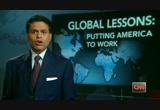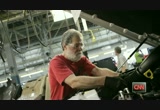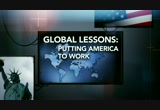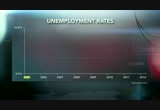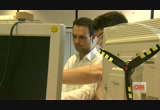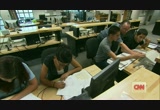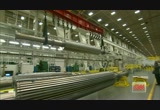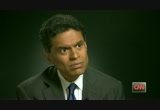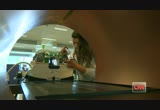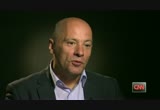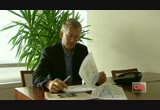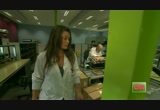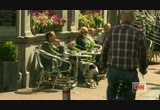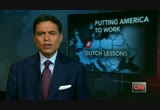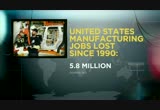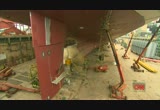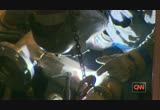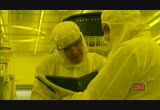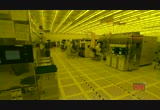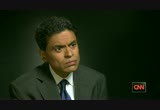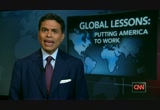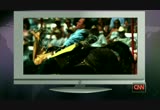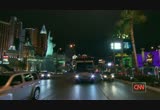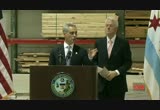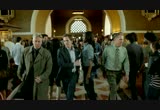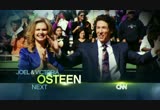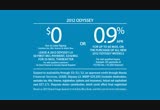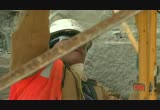tv America to Work CNN September 23, 2012 8:00pm-9:00pm PDT
8:00 pm
booze take america on a different course, would booth have pulled the trigger if he had not had a few in him. it helped bring the north and south together faster. it hastened the reconciliation, because the south was horrorfied by what booth did. it's not about booze being a good or bad thing, it's about the fact that it's always in the room, always shaping things whether we like it or not. >> more on the interview with mike rowe, go to cnn.com. thank you for watching. good night. welcome to a gps special, "restoring the american dream: getting back to work." i'm fareed zakaria.
8:01 pm
if there's an idea of the heart of the american dream, it's surely a job. a family, a house, two cars to be sure. but at the center, a good job and rising wages. today that dream is at risk. we are in the midst of america's worst jobs crisis since the great depression. the official unemployment rate is 9.1%. but if you add the people who can only find part-time work or who stopped looking for a job altogether, the rate is over 16%. after the 1990 recession, it took us 15 months to recover those jobs after the 2001 recession it took 39 months. and after the 2008 downturn, mackenzie says it will take five whole years to take back to where we were. why has this problem grown over the last 20 years? the most plausible explanation is that the revolutions of information technology and globization make it much easier
8:02 pm
for work to be done by machines or cheap labor overseas. that may be great for companies and for capital, but it places tough pressures on the american worker. so what can be done. in this hour we will offer you a global perspective on jobs, taking you around the world to look for solutions for the unemployment crisis. we will visit europe, asia and the middle east, and we will go to chicago where we spoke to obama's former chief of staff, now mayor, rahm emanuel. first let's look at how to solve one of the most crucial aspects of the jobs crisis, what to do about youth employment. over 16% of americans under 25 are jobless. one country in europe may have a solution. let's get started.
8:03 pm
the u.s. had a 1 in 6 chance of being unemployed as a young adult. but he lives in germany where the youth unemployment rate is less than half of hours. one of the reasons for that, germany's apprentice system. he has an apprenticeship at a high manufacturing giant. the company gives him three years of paid training and a guaranteed job offer and he attends vocational school.
8:04 pm
siemens is not the only one offering the sweet deal. in most cases, they offer a full time job while the government provides a free vocational education. almost two-thirds of germany's young people take part in apprenticeships. >> it ranges from hair dresser training to, you know, running a nuclear power plant. >> seimans says his company is training 10,000 apprentices in germany. there is a hefty price tag for each trainee. over $120,000. >> that's a major investment. >> yeah. >> you think you get a return? >> we know we do. >> and other companies in germany do the same thing? >> this is not forced upon us. we think it's a good model.
8:05 pm
germany's success has been nothing short of remarkable. the country enacted reforms and cut costs and went through a painful period of restructuring. in 2005, unemployment peaked at 11%, much higher than the united states. but the changes made germany much more competitive. manufacturing exports started soaring, and during the global recession, unemployment actually went down in germany while everybody else's went up. germany's apprentice system providing a wealth of high-skilled workers had a lot to do with that success. apprentices get a crash course in manufacturing, and also work on their own projects. they can even get a bachelors degree. >> there's a sense in the united states that the train something a lid on a kid's career and it's quite the opposite. >> i already got my prototype
8:06 pm
working -- >> when apprentices complete their training they get a certificate that is accepted throughout their industry. so they can even work for another company if they want. but at siemans 85% end up staying after that training. >> that kind of investment and participation with the employee ends up in creating loyalty. >> the lynchpin of germany's apprentice system is collaboration. the companies and the vocational schools and the government and the trade unions all work together to make sure that industry and its future workforce are compatible. >> it's almost like a triangle between government, private business and education -- >> exactly. >> in the u.s., our patchwork system of job training programs is one of the reasons why we have 3.5 million job openings
8:07 pm
unfilled. but in siemens in north carolina, they found a partner. the community college has been running a program where students earn a degree and students get trained by local manufacturers, just like germany. >> it's not rocket scientist. the germans have been doing this forever. >>. >> i can live with a 93. >> but convincing students that a four-year college degree is not the only route to success. >> it was never a plan for me to be working in any type of industrial factory. >> hope johnson was an honor student in high school, and her parents really wanted her to attend a university. but as a math and science enthusist, hope loved the facility and her parents love
8:08 pm
the free tuition. >> you focus on your grades and what you are learning in the factory, because they are paying for everything. >> now, johnson is learning how to operate the machines that build seimens massive generators. >> my friends are working at fast-food stores, and grocery stores, and i work at a giant factory making stuff for power plants. you can't beat that. >> but the big question is whether or not apprenticeship programs like siemens can be scaled up and offered all over the country. more will need to vest in training and attitudes towards blue color work will need to change. >> they are called the blue men because they wear blue overalls, and they are very proud. >> how do we deal with the
8:09 pm
culture difference. in america it's not true. >> i think it was true. journeymen, this is something that we have in our history. we just have to bring it back. >> if germany reminds us to return to our roots to help the next generation find jobs, another country has a way to help the current workforce. its unemployment rate is only 5%. how do they do it? stay with us. [ male announcer ] citi turns 200 this year. in that time there've been some good days. and some difficult ones. but, through it all, we've persevered, supporting some of the biggest ideas in modern history. so why should our anniversary matter to you? because for 200 years, we've been helping ideas move from ambition to achievement.
8:10 pm
and the next great idea could be yours. ♪ sven's home security gets the most rewards of any small business credit card! how does this thing work? oh, i like it! [ garth ] sven's small business earns 2% cash back on every purchase, every day! woo-hoo!!! so that's ten security gators, right? put them on my spark card! why settle for less? testing hot tar... great businesses deserve the most rewards! [ male announcer ] the spark business card from capital one. choose unlimited rewards with 2% cash back or double miles on every purchase, every day! what's in your wallet? here's your invoice.
8:12 pm
so germany shows us how to get young people into an employment pipeline. but what about people who are already employed? how do we make sure they stay employed? through the peaks and trufs of the national economy, and the highs and lows of the economy. we travel to the netherlands. what is their secret? it's something called flex security. come with me and i will explain. >> i started as a mechanic and
8:13 pm
then became tester and then troubleshooter. >> patricia works at royal phillips electronics. you probably know it simply as phillips. they make simple light bulbs to high-te high-te high-tech equipment. she is a troubleshooter for the mri machines that help scan patients' bodies in hospitals around the world. why? in the netherlands, it's all about making sure people can stay employed in spite of any economic curveballs. >> it's not about the same job, the lifetime employment, but it's about keeping people employab employable. >> the professor advised the european commission to help
8:14 pm
create more and better jobs. that earned him a unique nickname. >> people called me flex security, and whether it's a good name or bad name depends because it's a debate. >> flex security is a fiercely debated concept that was first coined in denmark. it combines ideas from both sides of the atlantic. on the one hand, american-style flexibility, the ability for employers to hire and fire with relative ease. on the other, a traditional european style security net making sure the employee is taken care of if they are fired or laid off. but in the wake of austerity, with unemployment soaring, some argue that the danish fairytale lost its plot. a centerpiece of the dutch system is something called a mobility center. it helps people find their next
8:15 pm
job instead of being let go. and franz is one of the largest employers in the netherlands. >> the skills that maybe phillips may no longer need but could be useful in other companies will be made available. >> in america, an employer facing a downturn would simply layoff employees, and in the leather hrupbdz they are sent to the mobility center where a great effort is made to find them work with one of the other partner companies. it helps companies share risks in bad times while still actively maintaining a trained workforce that they can tap into in good times. >> everybody needs work, because it's an amazing society. so they need the support of other companies. so it's like a joint interest. >> it helps the bottom line, adds a professor. companies have a huge incentive
8:16 pm
to place the worker elsewhere, and if they don't, they have to pay the employees unemployment benefits for up to 38 months. >> by working together with other companies in the mobility center, it's something we do not have to carry on our own but rather it becomes a job market and the attractiveness of the job market is that it facilitates people and that's what we all want. >> we see a major shift from lamps to l.e.d. lighting. but it has the consequence that older technologies become a obsolete. >> instead of laying off the incan decemberant workers, phillips tries to move workers to oth jobs within the
8:17 pm
country. remember, if one job goes away she has skills for another. >> i think i am in a better position in the job market than a couple years ago. >> if that doesn't work, there's the mobility center. >> if you want to layoff somebody, it costs money, and that money usually goes to the employee. in the mobility center, we invest some of the money that may have went for compensating the layoff in actually helping the employee find another position. >> it's a win-win for the company and for its employees. and in some cases, companies like phillips pay the difference in peoples' salaries if they have to take lower paying jobs. it's work transition and training programs like these that helped the netherlands unemployment rate drop 60% since the 1980s. but the dutch have also taken the flexibility part of flex
8:18 pm
security to the next dimension. half of the population, 77% of women work part time, so there are simply more jobs to go around. and people largely like the balance, says the professor. >> those people, most of them do not want the full time job. that's part of the dutch model. >> of course these protections are so expensive that companies are also starting to rely more and more on temporary agency workers who enjoy most of the same rights as regular workers but can be dismissed more easily, and that could lead to greater inequality. but overall there's a reason the netherlands have one of the most productive labor forces in the world. >> it's not only social responsibility but itself interest. it's a small country. we want to be competitive, so let's not waste the human
8:19 pm
capital, the talent that is here, let's keep it. >> the key lesson america can take from holland and germany is that companies are given incentives to invest in their workers so that even when they do let them go, those workers retain skills and can be reemployed. up next, should government be in the business of backing whole industries in order to create jobs? [ softly ] she's right behind me isn't she? [ male announcer ] progresso. you gotta taste this soup. ♪ [ sighs ] [ bird chirps ] [ bird squawks ] ♪ [ bird screeching ] ♪ [ elevator bell dings ] [ sighs ] how mad is she? she kicked me out. but i took the best stuff. i'll get the wrench. ♪ [ male announcer ] kohler's tresham collection.
8:20 pm
life. with a twist. ♪ life. with a twist. see lioutdoors, or in.ight. transitions® lenses automatically filter just the right amount of light. so you see everything the way it's meant to be seen. maybe even a little better. vsp members can save on all authentic transitions lenses, including our new transitions vantage and transitions xtractive lenses. experience life well lit. ask which transitions adaptive lens is best for you.
8:23 pm
we have seen how germany gets young people into the workforce, and how the netherlands keeps people there, but what about government supporting specific industries in order to help create jobs? yes, i am talking about industrial policy, a taboo subject in america. but government support for industry is worth examining, because it has created a lot of jobs for some of the world's fastest growing economies. it's a busy day at the heavy industries ship building plant in south korea. over 10,000 workers churn out a massive new ship every three days. 40 years ago, this chip yard didn't even exist, and south
8:24 pm
korea's ship building industry was tiny. but today this mid-zed nation of 50 million people is the number one ship builder in the world. with an industry that supports a huge number of jobs -- >> today, almost half of the world's commercial ships are made in south korea. >> the co-founder of the new america foundation runs the think tanks program on economic growth. he points out south korea's dictator in the '60s and '70s gave subsidies to develop heavy industries like steel, ship billing and cars. the companies that were backed, hundred die, lg and samsung are now household names. other asian countries like china and japan funded industry too, often with impressive results. >> together, they had 8% of globalship building. it's entirely a product of
8:25 pm
industrial policy, and particular subsidies by government. >> u.s. ship building once tried -- >> thanks in part to subsidies. but in the 1980s, president reagan eliminated many of the subsidies. how is the industry doing today? >> the united states has 0.5% of commercial ship building right now. >> of course, industrial policy can be a losing strategy, too. the government is spending all this money favoring one industry over the other, and it's going to make lots of mistakes? >> that's right in the sense that you -- sometimes you get a massive misallocation of resources. >> look at the company solyndra, got a big loan from president obama, and then went bankrupt
8:26 pm
costing the taxpayers millions of ollars. an initiative in albany has made new york a leader in a cutting edge industry, nanotechnology. >> it's going to have certain implications from society. >> physicist and inventor and fully licensed nanogeek, and he is part of the state of new york. >> it's the know how of measuring molecules. >> it shows up everywhere in our lives. and they convinced over 300 nanotech companies to come to albany creating 15,000 jobs across new york. >> the average wage for one of those jobs in $92,000.
8:27 pm
we are talking $1.3 billion in wages alone going into the state economy. >> how did they do it? using an industrial policy of sorts. >> not a single dollar goes to the companies. >> in the mid 1990s, a governor approved a grant to the state of new york to create a nanotech research hub that companies could use. companies started to give money, too, because the cost of having their own research facilities was a huge expense. >> they can't afford doing it on their own. so they love to partner with us. >> big names like imb and inintel and samsung got into the mix. new york state has given $1 billion to the college, but companies have given over $13 billion. >> we are not picng winners and losers. >> you are not picking specific
8:28 pm
companies, you are creating a kind of open infrastructure which anybody can use? >> absolutely. >> the college lifted albany's economy giving many workers a second chance. john kaef was laid off after working almost 23 years. he and some of his former co-workers were retrained by the college to work in the clean room where computer chips are made. putting on the required bunny suit felt odd at first, but he has gotten used to it. >> i am happy, and they take care of me and i am hoping to retire from here. >> the next step is to apply the research model to other industries. the call eupollege received ove million from the department of energy to form a hub for america's solar companies.
8:29 pm
>> you think this is a better model? >> absolutely. the white house and federal government has to look at how they do the things, you don't pick winners and losers and you look at what the science is telling you of the 21st century? >> when we come back, another lesson in job creation in a very unlikely place, a desert oasis in the middle east. stay with us. when you see these problems do you take a step back, or do you want to dive right in? with a degree in business from capella university, you'll have the knowledge to go further in your career than you ever thought possible. let's get started at capella.edu everyone in the nicu, all the nurses wanted to watch him when he was there 118 days.
8:30 pm
everything that you thought was important to you changes in light of having a child that needs you every moment. i wouldn't trade him for the world. who matters most to you says the most about you. massmutual is owned by our policyholders so they matter most to us. if you're caring for a child with special needs, our innovative special care program offers strategies that can help.
8:33 pm
government funding for specific industries to help create jobs can be a hit or miss proposition. but there is one industry in america with tremendous potential for job growth, and it needs fewer regular legs, not government money. the tourism industry. and few places do tourism better than dubai, one of the united emirates on the persian gulf. the world's tallest building over half a mile high, and man-made islands shaped like a palm tree sprouting with luxury hotels and an indoor ski slope in the desert oasis, located at a shopping mall. when tourists come to spend money, they are like walking job stimulus programs. fritz is the ceo of starwood hotels and resorts, the company
8:34 pm
that owns the sheraton and westin and w hotels. it's remarkable considering dubai's small 2 million people. >> 20 or 30 years ago, people didn't think about going there. if you are in russia, it's a place people go. >> dubai aims to create 950,000 jobs fueled by tourism and related sectors. >> the idea that a small city state could create a million jobs in a decade. that's an enormous amount of growth. >> dubai's success in tourism comes at the perfect time, because the industry is booming across the world. countries like china and brazil and india have rapidly growing middle classes that have come to see the world. almost 18 million chinese expected to travel outside their
8:35 pm
country this year according to the chinese government, and that number is expected to be over 100 million in 2015. >> the opportunity in travel and tourism today is bigger than it ever was. >> but they are missing out on the opportunity in a big way. after 9/11 america tightened visa policies to help security, and we have lost around one-third of our share of the international travel market, and the good thing is we can turn things around. >> how big can the tourism be if we got it all right? >> if the u.s. could get back to its own share of international travel that it has lost in the last decade, that would amount to about 1.3 million jobs, which is roughly 20% of the total number of jobs that were lost in the entire crisis. that's a big number. >> so what can we learn from
8:36 pm
dubai to boost tourism here at home? lesson number one. make the visa's easier to come by. >> they hand out visas for nationals right there at the airport. we can't do that, but we can make it easier to apply for a visa. >> in fact, so many people have to take the trip before they even make the trip. >> the cost of more visa processing would easily be paid for by the increase in tourism business. lesson number two. promote your tourist destination. promote it like there is no tomorrow. dubai has its own department of tourism, and the marketing efforts have been ranked first by the world economic forum. washington has historically had little involvement in wooing
8:37 pm
tourists. things are changing slightly. the president and congress created grand usa, a public private entity that will promote america abroad and the state department improved visa processing and said wait times are dropping. with greater ambition and the courage to do away with bureaucratic obstacles, this industry could grow mightily. >> the way i describe it as a business person, it's a good start but not mission accomplished. >> there is one area where we are way behind. lesson number three from dubai. infrastructure. right now the airport for this tiny state is one of the world's busiest, but apparently that was not enough, because they are building a new airport that would be the busiest by far in the world, handling 120 million passengers a year. not bad for a place that was only a small fishing village a
8:38 pm
few decades ago. >> this is a lesson that the u.s. has taught the rest of the world. there probably was not a good reason to go to las vegas a couple decades ago, and you can make the same argument about orlando, but u.s. businesses created those areas as a u.s. destination. created jobs and created an industry that the rest of the world took notice of, and has done a wonderful job of copying in some areas. when we come back, we return to the united states and show you an experiment in infrastructure that is turning heads and will create jobs in the windy city of chicago. stay with us. [ jack ] ...and alicia. ♪ this girl is on fire [ male announcer ] use any citi card to get the benefits of private pass. more concerts, more events, more experiences. [ jack ] hey, who's boring now? [ male announcer ] get more access with the citi card.
8:39 pm
[ crowd cheering, mouse clicks ] oh, hey alex. just picking up some, brochures, posters copies of my acceptance speech. great! it's always good to have a backup plan, in case i get hit by a meteor. wow, your hair looks great. didn't realize they did photoshop here. hey, good call on those mugs. can't let 'em see what you're drinking. you know, i'm glad we're both running a nice, clean race. no need to get nasty. here's your "honk if you had an affair with taylor" yard sign. looks good. [ male announcer ] fedex office. now save 50% on banners.
8:42 pm
a wall of snow has killed at least 11 people on one of the world's highest mountains. more than a dozen climbers are still missing after an avalanche swept through the campsite. these pictures shows rescuers evacuating the injured. it's considered one of the most dangerous mountains to navigate. and a amputee shot to death by the police officers. he tried to stab the officer with what turned out to be a pen. >> he discharged his duty weapon
8:43 pm
striking the suspect. >> the man got upset when he was denied a cigarette and soda, and the officer is on administrative lead. >> tiger who? rory who? most of the attention on mcaroy. and today snedeker takes home more than $11 million. not a bad day's pay for a round of golf. those are your headlines keeping your informed. cnn the most trusted name in news. in 2002, the world economic forum ranked u.s. infrastructure fifth in the world, and in the latest report, we're 25th. why? well, these days the rest of the
8:44 pm
developed world spends substantially more on infrastructure than we do. many asian markets do more. china spends 9% of the gdp on infrastructure to our 4%. our water mains are bursting and where are the great projects of the future. with borrowing costs lower than ever in history, why can't we start work. one man is on a mission to do just that, at least in his city. >> chicago mayor rahm emanuel, the notorious sharp witnessed and sharp-tongued former chief of staff for president obama has a bold plan to rebuild his city. >> when i secured this agreement to come to work for my
8:45 pm
presidential campaign, neither one of us had gray hair. >> he's getting help from an old friend. >> what you were doing here is the first in effect infrastructure bank using private capital that any city in the united states has established. this is a huge deal. >> the chicago infrastructure trust is mayor emanuel's plan to tap private investors to pay for big infrastructure projects that the government can no longer afford. they would expect returns from revenues, savings or fees. it's a model that has been successful all over the world from the expansion in europe to the creation of the world's largest ecocity in china. >> this is a classic example of what works in the modern world. >> everywhere, that is, except in america, until now.
8:46 pm
the chicago nonprofit trust intends to pour $7.2 billion in adding runways to o'hare and rebuilding crumbling roads and fixing aging schools and repairing dilapidated rail lines and more. >> we will create 30,000 jobs, all going to work. >> and go all the way to the tip -- >> five investment firms expressed interest in being part of chicago's public private trust. but no proposals have been put forth, and no money has yet been invested by any of the potential private partners. america used to have the world's best infrastructure. in the 1950s, american highways, parks and state universities and airports were the envy of the
8:47 pm
world. >> when this country invested 4% of the economic gdp, ininfrastructure, it grew. when we scaled back our investments as a country to 2%, our economy grew at that level. >> with the government investing less, emanuel is taking matters into his own hands. his first project, an energy retrofit of several public buildings including the chicago cultural center, one of the city's largest energy consumers. >> this is the one we call the boiler room, arp, as senior citizens. >> exactly. it has seen better days. >> the retrofit will save the city's energy bill by 25% over the next three years. the city plans to take those utility bill savings, an estimated $20 million a year, and use that to pay back potential investors for the $225
8:48 pm
million retrofit. in addition to increasing efficiency, emanuel says, he has to make up for a century of negligent. just look at the water system. more than 3,800 water pipes broke in the city costing tens of millions of dollars. he is repairing or replacing 900 miles of water pipe over the next decade. the city council voted overwhelmingly to pass the trust and get approval on projects. but critics question whether it's a smart move. they point to the quick cash for parking in 2008. >> there's a role for public and private partnerships, and selling a asset is the public
8:49 pm
taking over a private entity, and that's the wrong way in my view. >> this is not just a chicago story, according to robert fuentes. this is a lot of questions and folks are eager to understand how it's going to work. the chicago lessons will have a ripple affect across the country. >> the chicago infrastructure trust is perhaps a local version of the national infrastructure bank, an idea not even rahm emanuel could push through during his time at the white house. >> why did the infrastructure bank idea not take off? >> because it got caught up in the politics of making sure the president does not have a win and the politics of ideology. >> he is waiting for the gridlock to clear in washington or at the state capital.
8:50 pm
>> the infrastructure trust let's us unlock our future and take control of our destiny and not leave it to the problem, the challenges and dysfunction of washington or springfield. >> infrastructure spending is the fastest way to create jobs, especially in the construction sector. the hardest hit by the recession. an investment here lays the foundations for our economy to remain competitive for decades to come. up next, my thoughts on putting america to work. capella university understands rough economic times have led to an increase in clinical depression.
8:51 pm
drug and alcohol abuse is up. and those dealing with grief don't have access to the professional help they need. when you see these issues, do you want to walk away or step up? with a degree in the field of counseling or psychology from capella university, you'll have the knowledge to make a difference in the lives of others. let's get started at capella.edu
8:54 pm
with watching how countries around the world created jobs with lessons on how we might do some of the same, but before we talk about the technicalities and training programs and funding technology, there's a larger question that many americans wonder about. should the government do anything at you will? should it just get out of the way? this debate is on display in the
8:55 pm
american presidential campaign. on the one hand president obama has been making the case that the economy needs investments in infrastructure, education, training, science and technology. those investments are the key driving growth in industries, and that's how the other governments have approached growth. >> it's wonderful to be with you. thank you. >> governor romney on the other hand argues america needs tax and regulatory relief. the country is overburdened by mandates, taxes and rules to make it difficult to grow and prosper. he wants to cut taxes and reduce regulations and streamline government. from switzerland to singapore to dubai, you can see that being friendly to business and
8:56 pm
tourists, it can be a bonanza. most agree the government must act and the need is urgent. if you defer maintenance on your house it deteriorates and you have to pay more. that's what we are doing with our infrastructure. rather than fix it now, when borrowing costs are at historic lows, we are passing a bigger bill to the children. the world economic forum ranks us 25th in the world in infrastructure, down from 5th only a decade ago. education may be more complex. spending the money is not the answer, but the problem is clear. in the 1970s, america led the world in the number of college graduates. as of 2009, we are 14th among rich countries and the jobs of future will all require more education than in the past. or take federal funding for research and development. that's at half the share of gdp
8:57 pm
than in 1960 according to the national science foundation. industrial policy is more controversial, historically there is no question the u.s. government provided massive support in aircraft and simi conducting, and fracking was a technique with funding and help from the department of energy. let's be clear, though. governor romney has a strong case to make as well. that same world economic forum study that gave us four marks for infrastructure gives us terrible marks on taxes and regulation. on the burden of government regulation category, the united states ranks 76th with a score of 3.3 on a total scare of 0 to 7. on the extent and effect of taxation, the united states ranks 69th out of 144 countries. the united states came in 103rd out of 144th.
8:58 pm
now the truth is overall the u.s. economy remains highly competitive. the world economic forums ranks the u.s. overall as the seventh most competitive in the world. that's why a few months ago the economists magazine predicted the liaison. president obama's message is urgent and relevant. but why do we have to choose between these t views? we need tax and regulatory reform to make ourselves more competitive. america has to make itself attractive for investors and consumers and tourists alike, and we should also make the crucial investments we need for a 21st century economy. the two views look at the same challenge from different perspectives. governor romney looks at the
8:59 pm
challenges and opportunities, and over the last 20 years as communism collapsed and socialism has been discredited countries around the world have become more business friendly and lowering taxes and streamlining regulations and the u.s. has to stay competitive ore over the long run, investment and other jobs move to other lands. and president obama's view looks from the perspective of an american worker, and these workers face intense competition from much cheaper labor. from 1980 and 2010, the pool of workers in the world expanded by 1.2 billion as chinese indian and indonesia africans started to work in officers. and add to that the technology that makes it easy to get work done with fewer workers. we live in exciting times
69 Views
Uploaded by TV Archive on

 Live Music Archive
Live Music Archive Librivox Free Audio
Librivox Free Audio Metropolitan Museum
Metropolitan Museum Cleveland Museum of Art
Cleveland Museum of Art Internet Arcade
Internet Arcade Console Living Room
Console Living Room Books to Borrow
Books to Borrow Open Library
Open Library TV News
TV News Understanding 9/11
Understanding 9/11
